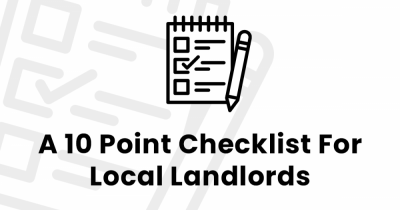In this three-minute read, we explain why it pays for landlords to review the management of their property.
In this three-minute read, we explain why every Glasgow and Lanarkshire landlord needs a Plan B to protect their investment if a tenant falls into arrears.
In this three-minute read, we look at a new report that outlines how Glasgow and Lanarkshire landlords can build a long and prosperous partnership with their tenant.
In this 3-minute read, we look at the reasons landlords in Glasgow and Lanarkshire need to think carefully about how they let their rental properties out.
In this three-minute read, we outline the costs and expenses landlords encounter when letting a property.
In this three-minute read, we look at the two biggest decisions landlords in Glasgow and Lanarkshire make when renting out their property.
In this three-minute read, we look at the ten most important things a landlord needs to succeed.
In this two-minute read, we look at the ingenious ways communities pulled together during the pandemic to spread joy and raise spirits.
By following a few simple rules, you can ensure you don't get shackled by the chain and enjoy your new home without any headaches.
We look at how best to prepare your property perfectly for those all-important marketing photographs.
We outline five ways to streamline the home-selling process.
We look at why setting an unrealistic asking price can delay and even derail the sale of your home.











